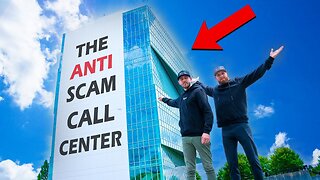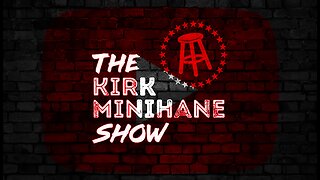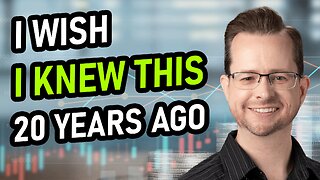Ladies of Another View-03.05.2024
From Despair to Joy: Joe McGivney's Miraculous Journey of Recovery
In the midst of life's darkest moments, there are often glimmers of hope that shine through the despair. Joe McGivney's story is a testament to the power of resilience, faith, and the miraculous potential of the human spirit to overcome even the most challenging of circumstances.
December 30, 2020, marks a fateful day in Joe's life, a day when he literally lost his mind. Collapsing on his living room floor, he entered a nightmarish world of alcohol-induced Korsakoff Psychosis. For nine agonizing weeks, he was trapped in a haze of hallucinations, unable to distinguish reality from delusion. Transferred from one institution to another, he was subjected to the confines of psychiatric wards, restrained, and deemed in need of perpetual care.
But amidst the darkness, a glimmer of light emerged. Joe's journey from the depths of psychosis to the pinnacle of recovery is nothing short of miraculous. Awakening one morning with clarity he hadn't experienced in weeks, he found himself asking the poignant question, "Where am I? And why am I here?" Doctors were baffled by his sudden transformation, unable to provide a rational explanation for his inexplicable healing.
It was through the arduous path of sobriety and the Twelve Steps that Joe discovered the true secret of his recovery. In a moment of revelation, he realized that his healing transcended the boundaries of medicine and science—it was a testament to the infinite power and love of a higher force.
In his gripping memoir, "You're a Miracle! My Story of Alcoholism, Miraculous Healing, and God's Infinite Power and Love," Joe recounts his journey with unflinching honesty and unwavering faith. From the depths of derangement to the heights of true joy, Joe's story serves as a beacon of hope for all those grappling with addiction and mental illness.
Joe's remarkable recovery is a testament to the transformative power of faith, resilience, and the unwavering belief in the possibility of miracles. His journey serves as a reminder that even in our darkest moments, there is always the potential for redemption and renewal.
As we navigate the complexities of life, let us draw inspiration from Joe's story—a story of hope, healing, and the boundless possibilities that await those who dare to believe in miracles.
Also:
Title: Apple's Viewpoint Discrimination: A Threat to Innovation and Diversity
In today's rapidly evolving corporate landscape, diversity of thought and ideology is increasingly recognized as a cornerstone of innovation and progress. Yet, despite widespread efforts to promote inclusivity and tolerance, instances of viewpoint discrimination continue to plague many organizations, stifling creativity and undermining diversity.
At the forefront of this battle against viewpoint discrimination is Scott Shepard, a fellow at the National Center and director of the National Center's Free Enterprise Project. With a background in law and a deep commitment to upholding the principles of free enterprise, Shepard is leading the charge against the encroachment of woke ideology in American corporate life.
Recently, Shepard and the Free Enterprise Project took aim at tech giant Apple during its annual shareholder meeting. Presenting a shareholder proposal urging Apple to prohibit discrimination based on viewpoint or ideology in its Equal Employment Opportunity (EEO) policy, Shepard highlighted the company's failure to explicitly address this issue.
The evidence presented by Shepard paints a troubling picture of discrimination within Apple's ranks. From refusing to match employees' charitable contributions to religious institutions to excluding certain viewpoints from the organization's giving program, Apple's actions reveal a concerning pattern of bias that threatens to alienate vast talent pools and hinder innovation.
During the meeting, Apple's Board of Directors rejected FEP's request to review the company's EEO policies, raising questions about the company's commitment to fostering a truly inclusive and diverse workplace environment. As Shepard aptly notes, genuine respect for conflicting ideas and opinions is essential for fostering innovation—a principle that Apple appears to pay lip service to but fails to uphold in practice.
The implications of Apple's refusal to address viewpoint discrimination extend far beyond the confines of the company itself. In a society increasingly polarized along ideological lines, the normalization of discrimination in corporate settings sets a dangerous precedent, further entrenching divisions and stifling progress.
In the face of such challenges, the work of individuals like Scott Shepard and organizations like the Free Enterprise Project is more crucial than ever. By holding corporations accountable for their actions and advocating for policies that promote diversity of thought, they are paving the way for a more inclusive and innovative future.
As we look to the future, let us heed the call to action sounded by Shepard and the Free Enterprise Project. Only by standing up against discrimination in all its forms can we truly unlock the full potential of innovation and ensure a brighter tomorrow for all.
Finally:
Title: NeuroPong: A Game-Changing Approach to Brain Health
In a world where neurological conditions like multiple sclerosis (MS) pose significant challenges to individuals' daily lives, innovative approaches to treatment and rehabilitation are always welcome. One such groundbreaking program, NeuroPong, has emerged as a promising tool in the quest for improved brain health.
The genesis of NeuroPong traces back to 2021, when Dr. Barbera, himself diagnosed with MS in 2016, embarked on a remarkable journey of recovery. Combining traditional medical treatment with an unconventional approach—table tennis—Dr. Barbera experienced firsthand the transformative power of this seemingly simple yet profoundly effective activity.
Table tennis, often dubbed the world's best brain sport, offers more than just a fun pastime—it provides a rigorous aerobic workout for both body and mind. A compelling brain imaging study conducted in Japan shed light on the neurological benefits of table tennis, revealing that just 10 minutes of gameplay can significantly increase activity in key brain regions such as the prefrontal cortex and cerebellum.
This finding underscores the potent cognitive effects of table tennis, making it an ideal activity for individuals looking to enhance their brain function and resilience. For those like Dr. Barbera, grappling with neurological conditions such as MS, NeuroPong represents a beacon of hope—a holistic approach to brain health that marries physical activity with cognitive stimulation.
Beyond its therapeutic benefits for individuals with neurological conditions, NeuroPong has the potential to benefit people of all ages and backgrounds. Whether you're seeking to sharpen your mental acuity, improve your reflexes, or simply engage in a fun and rewarding activity, NeuroPong offers something for everyone.
As we continue to explore the intricate relationship between physical activity and brain health, programs like NeuroPong serve as a testament to the boundless potential of innovative approaches to wellness. By harnessing the power of activities like table tennis, we can unlock new avenues for promoting brain health and resilience, empowering individuals to lead fuller, more vibrant lives.
In a world where the prevalence of neurological conditions is on the rise, initiatives like NeuroPong offer a ray of hope—a reminder that with determination, creativity, and a willingness to think outside the box, we can overcome even the most formidable of challenges.
🖇️CONNECT WITH LADIES OF ANOTHER VIEW:
https://www.bek.news/ladiesofanotherview
https://www.facebook.com/LadiesOfAnotherView/
📺WATCH MORE EPISODES:
https://www.bek.news/ladiesofanotherview/
👀Want more BEK? Checkout: https://bekbuzz.com/
-
 59:24
59:24
Ladies of Another View on BEK TV
2 months agoLadies of Another View "My Hometown" Agency Village-03.27.2024
68 -
 1:56:06
1:56:06
TimcastIRL
1 day agoTrump Raises RECORD $52.8 MILLION In One Day, Bonus Uncensored Show w/Laura Loomer | Timcast IRL
32.9K156 -
 23:19
23:19
Scammer Payback
4 days agoWe Created the First Ever 𝗔𝗡𝗧𝗜-𝗦𝗖𝗔𝗠 Call Center
170K217 -
 1:11:09
1:11:09
LFA TV
14 hours agoTRUMP GUILTY…OF LOVING AMERICA! Ft. Hayley Caronia & Vish Burra | LAST CALL 6.1.24 8PM EST
22.5K15 -
 1:02:02
1:02:02
The Kirk Minihane Show
6 hours ago420 Show
12.3K -
 1:06:35
1:06:35
Patriots With Grit
4 hours agoSpeaking Up, Pushing Back | Daniel McGirr
15.2K4 -
 56:19
56:19
Total Horse Channel
2 days ago2024 Buckeye Reining Series | Saturday Night | 7:30 pm EST
19.1K1 -
 1:15:38
1:15:38
Steve-O's Wild Ride! Podcast
2 days ago $0.22 earnedG Eazy Opens Up About Falling Off - Wild Ride #217
23.8K11 -
 18:44
18:44
We Profit with Stock Curry
6 days agoUltimate Advice for Teens & Young Adults
29.2K13 -
 LIVE
LIVE
Lofi Girl
1 year agoSynthwave Radio 🌌 - beats to chill/game to
224 watching